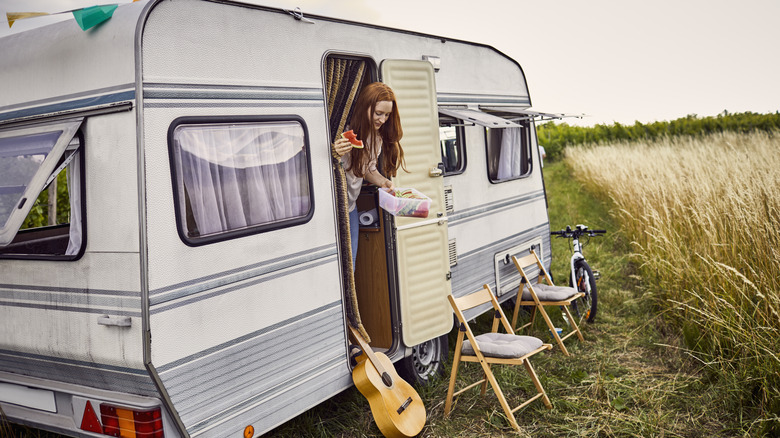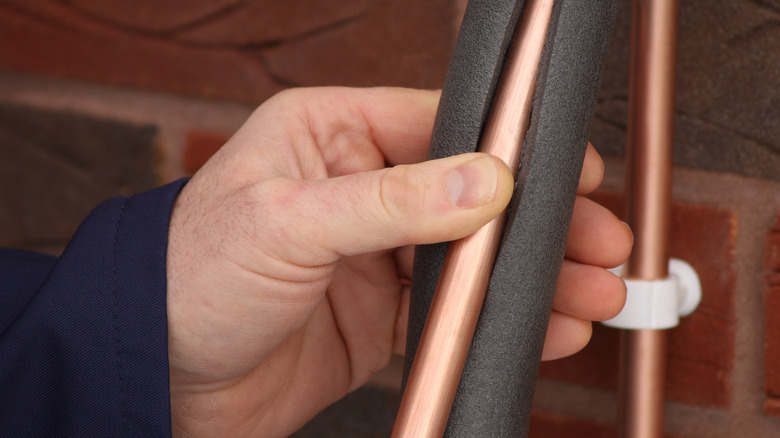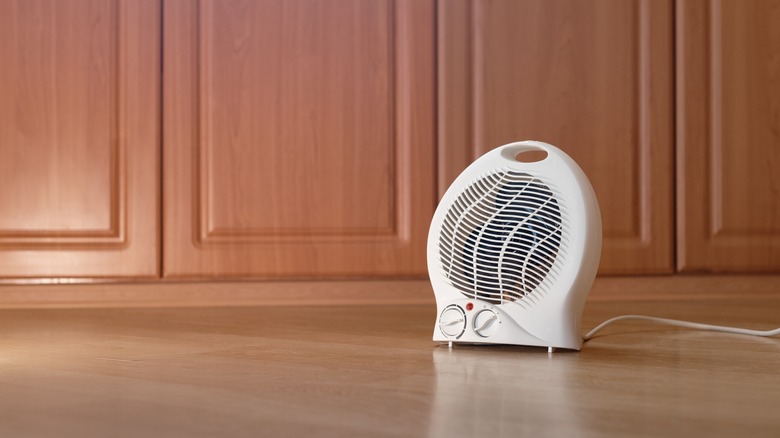Essential Tips For Mobile Homeowners To Prevent Frozen Pipes
Owning a mobile home means freedom, affordability, and being able to call anywhere "home." But when winter arrives, every mobile homeowner dreads one thing: frozen pipes. Frozen pipes can lead to big, costly problems like leaks or even bursting. Fortunately, there are some easy ways to stop your pipes from freezing. You can monitor outside temperatures, add insulation or heat tape to your pipes, and keep your home continuously warm.
One of the easiest and most effective ways to prevent frozen pipes is to keep track of the temperature. When it drops below freezing (32 degrees Fahrenheit or 0 degrees Celsius), it's time to protect your home. Don't dilly dally: Pipes in mobile homes are uniquely vulnerable, as they're typically more exposed to cold than those in traditional houses. To ensure you're always updated on the temperature, set up notifications on your phone that alert you when it's expected to drop.
Once freezing temperatures have hit, don't just sit back with a cup of hot cocoa and hope for the best. Leave a little bit of water running from your taps – just a small trickle will do it. This keeps water flowing, making it harder for your pipes to freeze. Also, open any cabinets under your sinks, especially if the pipes are near outside walls. This allows the warm air inside your home to circulate around the pipes.
Insulate, insulate, insulate
Insulating your pipes or wrapping them in heat tape is like giving them a warm winter coat: It creates a barrier that keeps the cold out and the warmth in. Insulation comes in many forms, such as foam tubes or fiberglass wraps, which can easily be wrapped around the pipes under your mobile home. The goal is to cover all the pipes exposed to the chilly air — no pipe should be left out in the cold.
If foam insulation isn't enough or you live in a particularly cold area, heat tape might be your best bet. Don't worry, it's not actual tape, and you won't need to do any complicated electrical work. Heat tape is a special cable you wrap around your pipes, generating a small amount of heat to keep them from freezing. You just plug it in, and it does the job for you — no fuss, no freezing. Follow the instructions carefully, and always check that the heat tape is specifically designed for your type of pipe. When using heat tape, inspect it before every winter season. You don't want to be caught off guard by a faulty cable when temperatures drop. Also, don't forget to check that the plug is working properly and hasn't been damaged by water or pests.
Keep your home warm
Mobile homes can cool down quickly in the winter, especially if they're not well insulated. It's important to keep the temperature inside warm enough to prevent any freezing mishaps. A good rule of thumb is to keep your thermostat set to at least 55 degrees Fahrenheit or 13 degrees Celsius at all times, even when you're away. Yes, it might add a little to your electricity bill, but the cost of repairing burst pipes is way higher.
Don't just heat the main living areas, either — ensure heat reaches the places where your pipes are. If your pipes are in an unheated part of your home, like a crawl space or an exterior wall, you might need to open up vents or doors to let warm air circulate. In some cases, a small space heater in those areas can make a difference. Just be sure to use it safely; nobody wants a fire while trying to prevent frozen pipes.
Another thing to keep in mind is sealing any drafts in your mobile home. Cold air can sneak in through cracks around windows, doors, or vents, dropping the temperature inside your home and around your pipes. A little caulk or weather stripping can do wonders to keep the cold out and the warmth in. You can also add heavy curtains to block out the chill. They basically wrap your home in a warm hug, making your home feel cozier and preventing those pipes from turning into popsicles.


